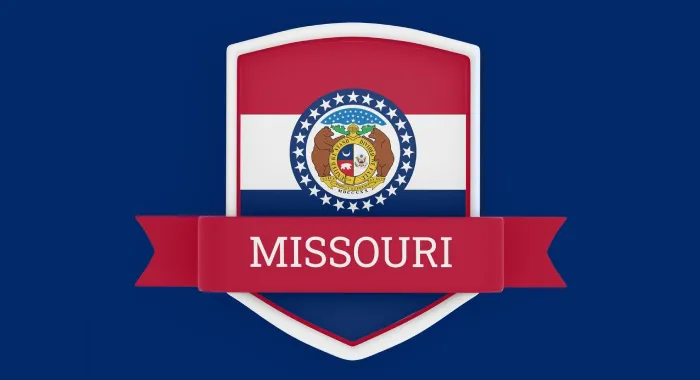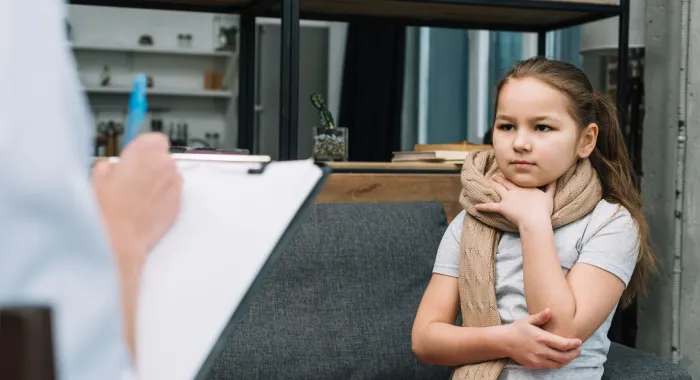Missouri is the nation’s crossroads – the gateway from the East to the West. As such, the state has a rich fabric of different people, particularly on its many college campuses.
Child psychology is an important service in all corners of the nation, including Missouri. Children must cope with many stressors, from hunger to difficulties in school to trouble at home with parents or guardians.
As a prospective child psychologist, there are a myriad of ways you can assist children in their growth and development. You can work as a school psychologist in a Missouri public school, a developmental psychologist for a Missouri state agency like the Missouri Department of Social Services, and in private practice with children and adolescents.
Before you can do that, though, you need the appropriate education and training. Luckily, there are a number of child psychology-related graduate programs available in Missouri.

Child Psychology Graduate Programs in Missouri
Listed below are some of the popular schools offering child psychology graduate programs in Missouri:
- University of Missouri
- Capella University
- Missouri State University
- University of Missouri – St. Louis
- Washington University in St. Louis
- St. Louis University
- The Chicago School
University of Missouri
Master of Arts in Psychology with Emphasis in Child and Developmental Psychology
This MA program in child development from the University of Missouri is unique in that it has a dual focus on development and developmental psychology. This means you will get both clinical training and research training to prepare you for a future career in child and developmental psychology. In particular, your studies will focus on developmental psychopathology, which blends clinical child psychology and developmental psychology principles.
This program, which requires 30 credit hours of coursework, can be completed in about 1.5-2 years. However, this is not a standalone Master of Arts program. It is expected that you will continue your studies to earn a Ph.D. As such, you must also complete 24 credits in your concentration area, 11 hours of statistics courses, and nine hours of distribution courses to meet the graduation requirements for a Ph.D.
During your course of study, you will also complete a master’s thesis, including original, supervised research on an approved topic. You must participate in a final oral examination that investigates your thesis work as well.
To apply, you must have an undergraduate degree with a minimum GPA of 3.0 or higher. A degree in psychology is not required, though it is helpful. GRE scores are required, but there is no minimum score requirement.
Additionally, you must submit the following along with your application:
- A statement of purpose
- A writing sample
- A faculty interest document
- Three letters of recommendation
- Official GRE scores
- Unofficial transcripts from each college or university you have attended
- Proof of English proficiency if English is not your native language
Missouri State University
Graduate Certificate in Forensic Child Psychology
If you already have a graduate degree in psychology and want to expand your skill set, a graduate certificate like the one in Forensic Child Psychology from Missouri State is a great option.
With just 12 credits needed for completion, you can add forensic child psychology to your list of professional competencies in as little as one semester. The program includes the following courses:
- Forensic Child Psychology
- Psychology of Child Abuse and Exploitation
- Forensic Psychology: Child Abuse and the Law
- Directed Research
The directed research component allows you to conduct original research under the direction of a faculty advisor. Doing so enables you to dive deeper into a forensic child psychology topic of interest to you while developing enhanced psychological research skills.
However, before you complete this research component, you must pass a comprehensive exam. This exam explores the topics covered in the three core courses listed above. You must pass the exam with a score of 70 percent or higher to receive your certificate.
Though this certificate program does not include training in conducting forensic interviews with children, it does provide you with the knowledge and skills necessary to support other psychology professionals in their forensic work. It’s a good option if you’re employed in medicine, criminology, law, social work, counseling, and related fields.
You can apply to this program by submitting a graduate application for admission. If you are already a student at Missouri State, the application fee is waived. Applications are accepted on a rolling basis, though you should submit your application at least one month prior to the semester in which you wish to begin the program.
University of Missouri-St. Louis
Clinical Psychology Ph.D.
The University of Missouri-St. Louis offers a Clinical Psychology Ph.D. program that prepares you to provide clinical services to clients of all ages, including children and adolescents. In fact, part of your clinical training can be completed at the Children’s Advocacy Center, which focuses on helping children that have experienced childhood trauma develop the skills they need to cope effectively.
This five-year residential program includes advanced coursework in psychology content areas as well as research. You will take courses that explore topics such as:
- Quantitative Methods
- Multicultural Issues in Psychology
- Developmental Psychology
- Psychopathology
- Applied Research
In addition to coursework, you will also complete a dissertation, a qualifying examination, and a practicum experience at UMSL’s Community Psychological Service, an outpatient mental health center where you will gain valuable clinical experience. The program also requires you to complete a paid clinical clerkship, during which you will develop improved clinical psychology skills in a university or community-based setting.
All told, you will spend one or more years in the clerkship and three years working at the Community Psychological Service, which combined add up to more than 1,500 hours of supervised clinical experience. This level of experience is critical for moving on to complete a clinical psychology internship.
The admission requirements are as follows:
- Submit a graduate application for admission
- Submit official transcripts showing an undergraduate degree with above-average grades in psychology coursework and a cumulative GPA of 3.0 or higher
- Provide a personal statement and a curriculum vitae
- Provide a writing sample
- Submit three letters of recommendation
Washington University in St. Louis
Psychological and Brain Sciences Ph.D.
Another unique graduate program you might consider is the Ph.D. in Psychological and Brain Science from Washington University. This program, which offers a specialization in aging and development, caters to students that wish to work in psychological research or academics. Therefore, this program might be a good fit if you are most interested in exploring child psychology issues in one of these realms.
Though this program explores the psychological changes that occur across the lifespan, there is a particular emphasis on cognitive development during childhood. Language development in early childhood is another point of emphasis. As part of these studies, you’ll take courses focusing specifically on the following:
- Thinking and planning
- Reading skills
- Spelling skills
- Speaking skills
- Atypical language development
However, you will also study related areas of brain sciences, including social and personality psychology, clinical science, aging, and cognition.
Admission to this program is undertaken by evaluating multiple components of your education, training, and experience. This includes the following:
- Undergraduate GPA
- Research experience
- Letters of recommendation
- A curriculum vitae (optional)
- A writing sample (optional)
You can submit an application online at any time, though applications for fall admittance must be received by December 1 of the previous year.
St. Louis University
Clinical Psychology Ph.D.
The Ph.D. in clinical psychology from St. Louis University is another excellent option if you wish to establish a career working with children in a clinical setting. This program is based on the scientist-practitioner model of training, so you will undertake advanced coursework, psychological research, and gain valuable real-world clinical experience.
You can choose from several areas of emphasis, including Clinical Child Psychology. This elective course of study includes a variety of courses, such as:
- Child Assessment and Psychopathology
- Psychopharmacology
- Cognitive Behavioral Interventions
- Couples and Family Therapy
- Child Interventions
As part of your training, you can pursue clinical placements in one or more of these areas. For example, you might seek a placement in a pediatric psychiatric facility where you can hone your skills in child assessment and psychopathology. Likewise, you might choose a placement at a community mental health clinic where you can gain experience conducting couples and family therapy.
This is a combined master’s and Ph.D. program. You must complete 30 credits of coursework and six thesis credits to earn the master’s degree. After that, 42 credits of coursework and 12 dissertation credits are required to complete the Ph.D. A dissertation, including a public presentation of your research and an oral defense of your work, is also required. An internship experience must be completed at an approved location prior to the Ph.D. being conferred as well.
To apply, you must have a bachelor’s degree or higher and have a high GPA (on average, applicants have a 3.7 undergraduate GPA or higher). Furthermore, you should have at least 21 undergraduate credits of psychology coursework, relevant research experience, and clinical research experience as well.
When applying, you must submit the following:
- Transcripts from all colleges and universities you have attended
- A personal statement
- A diversity statement
- Three letters of recommendation
- A resume
Select applicants will also be selected to participate in an interview.

Child Psychology Work Opportunities in Missouri
Like any other state, Missouri offers a wealth of job opportunities in child psychology-related areas. As mentioned in the introduction, you might work in school psychology, developmental psychology, or clinical psychology, to name a few.
An interesting application of child psychology training is in the trauma psychology space. Though children can experience all sorts of trauma (e.g., emotional abuse, sexual abuse, domestic violence), a field of child trauma psychology that’s more prominent in Missouri and other southern states is related to natural disasters, specifically tornados.
As a child psychologist, you might specialize in trauma therapy for children that have witnessed tornados or experienced loss due to tornados, such as the death of a loved one. This type of therapy might be done in any number of ways – in an emergency situation in the aftermath of a tornado, in a group counseling setting, or in individual or family therapy.
Another job opportunity for you in Missouri after becoming a child psychologist is to work in an inpatient treatment setting. Children with addictions, eating disorders, and psychotic disorders are often institutionalized to help them stabilize and begin treatment. As a child psychologist in this setting, you would provide various services, including assessment, treatment planning, and individual counseling, to name a few.
Recreation therapy is worth considering if you want to be a child psychologist. As the name indicates, the primary means of treating childhood disorders is through recreational activities, which Missouri has plenty of. Ropes courses, hiking, biking, swimming, and other outdoor activities are abundant in Missouri, and you can tap into those resources as a vehicle for helping your child and adolescent clients realize improved psychological health.
Related Reading
- Accredited Forensic Psychology Programs in Missouri
- Accredited Online Master’s in Psychology in Missouri


 Contact Us
Contact Us Privacy Policy
Privacy Policy